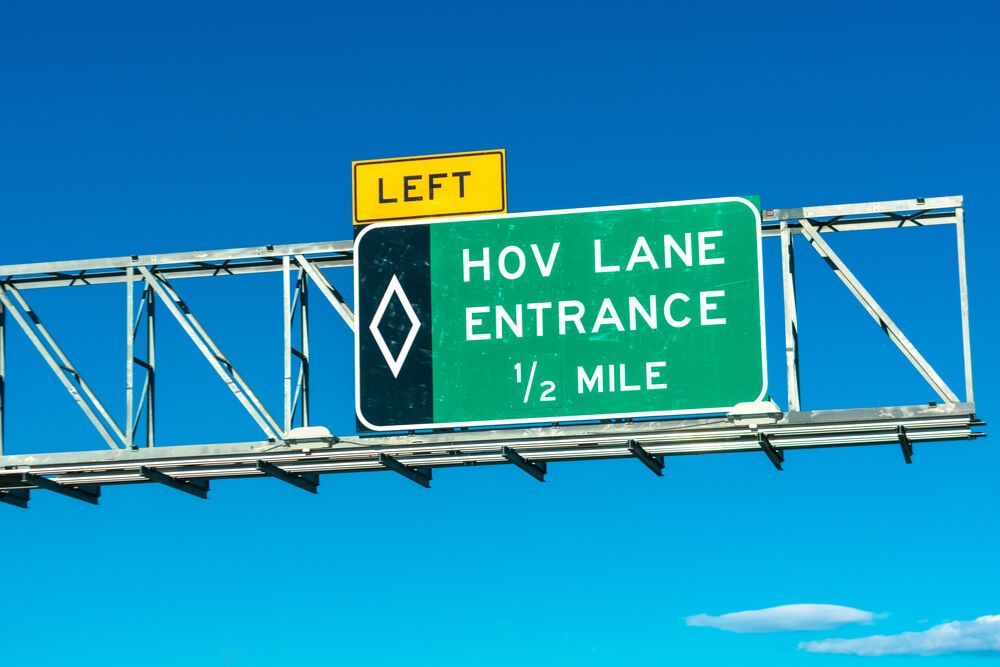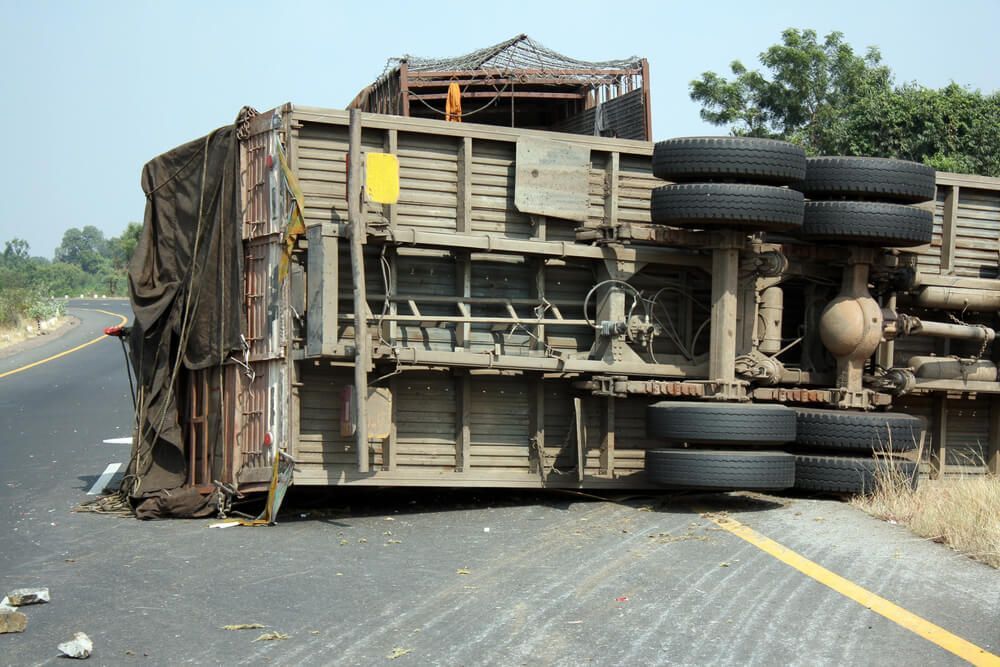What To Do When Your Car Insurance Denies a Claim
Recent Blog Posts
What To Do When Your Car Insurance Denies a Claim

Being in a car accident is stressful enough, but finding out that your insurance company denied your claim can be especially discouraging. Medical bills, repair costs and lost wages pile up quickly, and the last thing you want is to be left without financial help. If you’re wondering what to do when car insurance denies a claim, the good news is that you still have options.
What Should You Do When Your Car Insurance Denies Your Claim?
If your car insurance claim has been denied, don’t panic. There are many steps you can take to challenge the denial, strengthen your case or find other avenues for coverage. Consulting with an attorney can help you decide which steps make the most sense for your situation.
Review the Denial Letter
The first step is to carefully review the denial notice you received from your insurance company. This letter should state the specific reason, or reasons, your claim was rejected. For example, the insurer may argue that your policy doesn’t cover the type of accident you were involved in, that you missed a filing deadline or that your injuries aren’t supported by medical documentation.
Understanding the exact reason for the denial is very important. Without knowing why your claim was rejected, it’s nearly impossible to craft an effective response or appeal.
Check Your Policy
Pull out a copy of your insurance policy and review the fine print. Pay attention to coverage limits, exclusions and special conditions. For example, your policy may exclude coverage for accidents that occur while driving for work or using your car as a rideshare vehicle.
On the other hand, you may discover that the denial was based on an incorrect interpretation of your coverage. Checking your policy helps you determine whether the denial was legitimate or whether the insurance company may be acting unfairly.
Contact Your Insurance Adjuster
Sometimes, a denial is based on a simple misunderstanding or missing paperwork. By contacting your insurance adjuster directly, you may be able to clear up confusion and submit any additional documentation they need.
It’s important to remain calm and professional during the conversation. Document everything, including dates, times and the name of the adjuster you spoke with. If the issue isn’t resolved, those notes may be valuable later in the process.
Get a Second Medical Opinion
If the insurance company claims your injuries aren’t serious, or that they were pre-existing, don’t take their word for it. Seeking a second opinion from another doctor can provide additional medical documentation to support your claim. Having multiple medical professionals confirm that your injuries were caused by the accident can make it much harder for an insurer to deny your claim.
Appeal the Decision
If you believe the denial was unjustified, you have the right to file a formal appeal. An appeal allows you to present new evidence, clarify misunderstandings and challenge the insurer’s reasoning.
Each insurance company has its own appeal process and deadlines, so review the instructions carefully. Missing a deadline could cause your appeal to be automatically rejected.
File a Complaint
When insurance companies act in bad faith (deny claims without a valid reason), delay processing or otherwise act unfairly, you have the option to file a complaint with your state’s insurance department. Regulators can investigate and hold insurers accountable for unfair practices. While a complaint alone may not get you compensation, it puts pressure on the insurer and creates a record of their conduct.
Ask for Dispute Resolution Options
Many insurance policies include clauses for mediation or arbitration. These alternative dispute resolution methods can provide a faster and less expensive way to settle disagreements compared to going to court.
In mediation, a neutral third party helps both sides negotiate a resolution. Arbitration, on the other hand, results in a binding decision by an arbitrator. Both processes can be valuable if you want to avoid lengthy litigation.
Consider Other Insurance Options
Sometimes, even if your auto insurer won’t cover your damages, other policies might. For example:
- Health insurance can cover medical bills while you fight your claim.
- Uninsured/underinsured motorist coverage may apply if the at-fault driver’s insurance didn’t have enough coverage.
- Personal injury protection (PIP) or medical payments (MedPay) coverage can step in, depending on your state and policy.
Exploring these options ensures that you’re not left entirely on your own financially.
Get a Lawyer
If the car insurance denial stands and you’re facing significant expenses, you may need a lawyer. Lawyers who specialize in car accident claims know how insurance companies operate, what strategies they use and how to fight back effectively. Having legal representation also often changes how insurers respond. Once an attorney is involved, companies know they can no longer rely on intimidation or delay tactics.
An attorney can handle negotiations, gather additional evidence and even file a lawsuit if necessary. This step often levels the playing field, especially if your insurer is refusing to act fairly.
Why Do Insurance Companies Deny Personal Injury Claims?
Insurance companies are businesses. Their primary goal is to protect their bottom line, which means they look for reasons to minimize or deny payouts whenever possible. Here are some of the most common reasons car accident claims are denied.
Policy Exclusions
Every policy contains exclusions, which are specific circumstances where coverage does not apply. For example, if your accident happened while driving for a rideshare company and your policy excludes commercial use, your insurer may deny coverage.
At-Fault Party Wasn’t Covered
If the driver who caused the accident wasn’t listed on the policy or was driving a vehicle not covered under the policy, your insurer may refuse to pay. If the at-fault driver was uninsured and you don’t have uninsured motorist coverage, your insurer may deny your claim.
Missed Deadlines for Filing a Claim
Insurance policies typically have strict time limits for reporting accidents and filing claims. If you wait too long and miss a deadline, even for valid reasons, your claim can be denied.
Disputed Liability
If the insurance company believes you were partially or fully at fault for the accident, they may deny your claim. In states with comparative negligence laws, this can significantly impact how much compensation you receive.
Injury Wasn’t Proven
Insurers may deny claims if they believe your injuries aren’t adequately supported by medical evidence. For example, if you don’t have diagnostic tests, treatment records or consistent medical visits, they might argue you aren’t truly injured.
Pre-Existing Conditions
If you had a prior injury or medical condition, the insurance company may try to claim that your current symptoms weren’t caused by the accident but by your pre-existing issue.
Delayed Medical Treatment
If you waited days or weeks after the accident before seeking medical care, insurers may argue that your injuries weren’t serious or weren’t related to the crash.
Policy Limits Reached
If your damages exceed insurance limits, the insurer won’t pay beyond that limit. For example, if you have $25,000 in bodily injury coverage but your medical bills total $50,000, the insurer is only obligated to pay up to your limit.
Bad Faith
Sometimes, insurers deny claims without any legitimate reason at all. This is called acting in bad faith, and it’s illegal. Examples of bad faith include denying a claim without conducting a proper investigation or stalling payments to pressure you into giving up. If you suspect bad faith, legal action may be necessary to hold the insurance company accountable.
How Do You Appeal a Denied Auto Insurance Claim?
If your claim has been denied, you still have the right to appeal. The appeal process allows you to provide new information, challenge the insurer’s reasoning and request a reconsideration. When filing an appeal, you should include as much supporting documentation as possible, such as:
- Medical records, test results and doctors’ notes
- Photos or video footage of the accident scene
- Witness statements
- Police reports
- Repair estimates for vehicle damage
- Expert testimony, if necessary
The more evidence you provide, the stronger your appeal will be. After submitting your appeal, the insurance company will review the additional information and decide whether to reverse its decision. If they uphold the denial, your next step may be litigation.
Can You Still Settle if an Insurance Company Denies a Claim?
Yes, it’s still possible to settle even if your claim was denied, as you may still have options through legal action. Insurance companies often deny claims at first, but later agree to settle when they see that you have strong documentation and are prepared to fight back.
In other situations, settlement negotiations may only begin after a lawsuit is filed and the insurer realizes the case is unlikely to go away. Many lawsuits settle before trial, especially once new evidence strengthens your case.
How Can You Avoid a Car Insurance Claim Denial?
The best way to protect yourself is to prevent a denial in the first place. By building a strong claim from the start, you increase the chances of getting your expenses covered. Following these small but important steps after an accident can make a big difference in how smoothly your claim is processed.
Maintain Continuous Coverage
Allowing your policy to lapse can make insurers suspicious or even disqualify your claim. Always keep your coverage active, and make sure your policy reflects your current needs. For example, if you start using your car for ridesharing or long-distance commuting, you may need additional coverage. Keeping your information up to date shows the insurer you’re acting in good faith and reduces the chance of technical denials.
Report the Accident Promptly
Most policies require immediate reporting. Even if the accident seems minor, notify your insurer right away to preserve your right to file a claim. Waiting too long gives the company an excuse to argue that injuries or damages weren’t connected to the crash. Prompt reporting also allows your insurer to start its investigation quickly, which can help move your claim forward without unnecessary delays.
Document the Scene of the Accident
Take photos of vehicle damage, injuries, road conditions and anything else relevant to the incident. The more documentation you have, the harder it is for insurers to dispute your claim. It’s also helpful to gather names and contact information for witnesses, as their statements can back up your version of events. The stronger your evidence, the fewer opportunities the insurer has to challenge your claim.
Seek Medical Attention Immediately
Even if you feel fine, get checked out by a doctor. Some injuries, like whiplash or internal trauma, take time to show symptoms. Immediate medical care creates a record linking your injuries to the accident, which is key if the insurer later questions your claim. Delays in treatment can make it seem like your injuries weren’t caused by the crash, so don’t wait to see a doctor.
Follow Treatment Plans
If your doctor prescribes treatment or follow-up visits, stick to the plan. Skipping appointments can give insurers an excuse to claim your injuries aren’t serious or that you failed to mitigate your damages. Completing the recommended treatment not only helps your recovery but also demonstrates that you’re doing everything possible to address your injuries responsibly.
Avoid Talking to Insurance Adjusters Without Legal Counsel
Adjusters may seem friendly, but their job is to protect the company’s interests. Speaking to them without a lawyer can lead to statements being used against you later. Even something as simple as saying “I feel fine” could be twisted into proof that you weren’t really hurt. Having an attorney handle communications ensures you don’t accidentally undermine your own claim.
When Your Car Insurance Denies a Claim, Fight Back
When your car insurance claim is denied, it doesn’t mean you don’t have a personal injury case. With the right strategy and legal help, you can fight back and pursue the compensation you deserve.
At Sargon Law Group, we know how insurance companies operate and the tactics they use to avoid paying fair compensation. Our legal team has extensive experience dealing with denied claims and holding insurers accountable. Contact our car accident attorneys today to fight back against claim denials.





